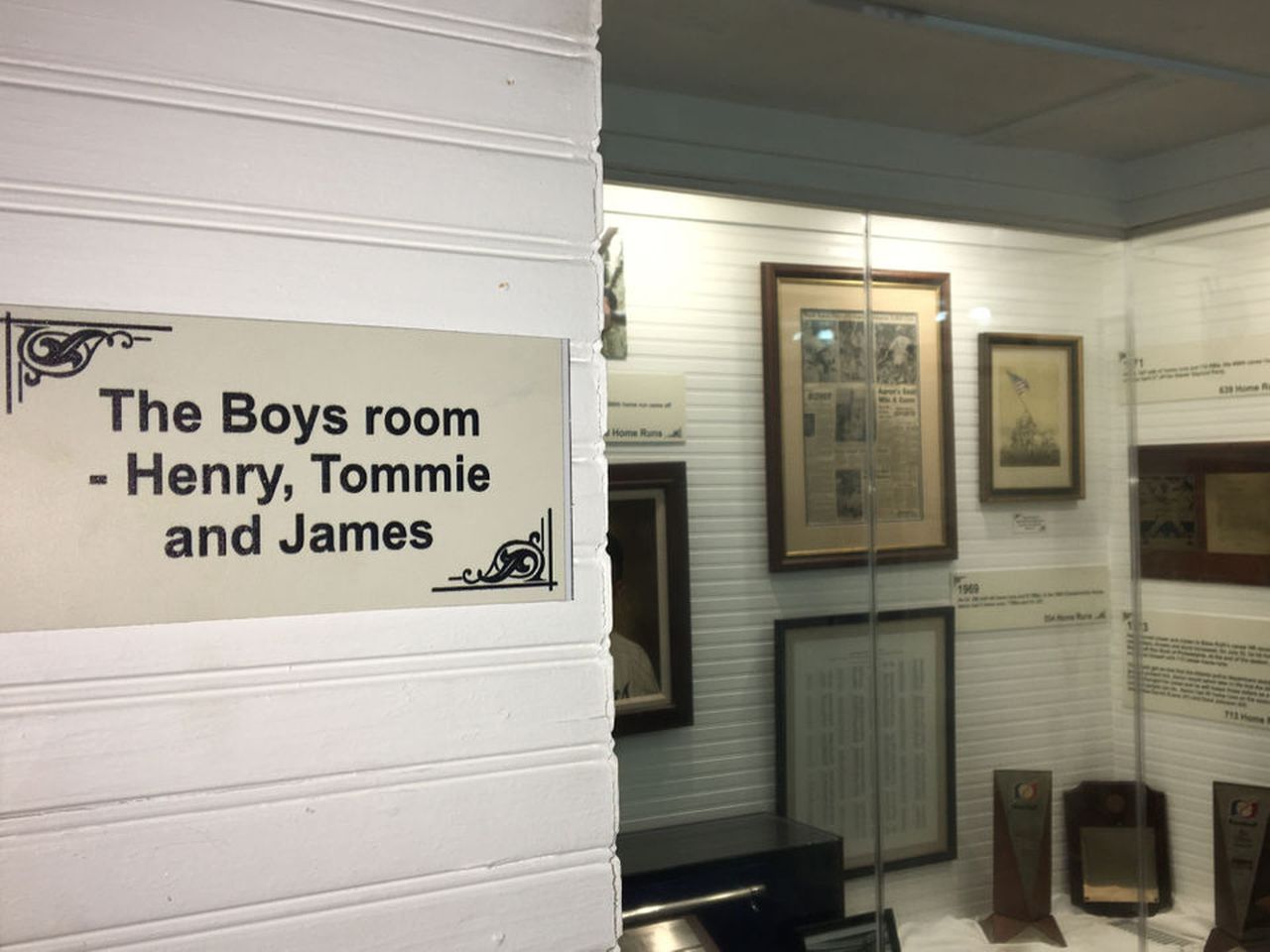Hank Aaron home relocating to original Mobile neighborhood
Hank Aaron’s childhood home is headed home to its original neighborhood in Mobile.
The Major League Baseball icon’s childhood home will be relocated from outside a vacant minor league baseball stadium to city property that houses the Mobile Police Department’s 3rd precinct within the Toulminville community of Mobile. Aaron grew up inside the house within the community during the 1940s and 50s.
The home’s move depends on approval from the Mobile City Council, which meets on Tuesday. The council is scheduled to consider at $124,500 contract with Mobile-based JPayne Organization LLC for the house relocation. A vote on that contract is likely to take place during next week’s meeting.
A city spokesman said there is no timetable for the house’s relocation.
The relocation to Toulminville is a departure from plans in April to have the home temporarily relocated to James Seals Park near the Mobile Civic Center.
“Our goal has always been to preserve and highlight Hank Aaron’s childhood home in the Toulminville community,” Mobile Mayor Sandy Stimpson said in a statement. “Our goal has always been to preserve and highlight Hank Aaron’s incredible legacy in the neighborhood where he first learned the game of baseball.”
Mobile City Councilman Cory Penn, who represents the Toulminville community northwest of downtown Mobile, said he believes the home’s relocation within the community will generate tourism and business interest to the area.
“We strongly believe that the presence of Hank Aaron’s house will ignite the aspirations of the younger generation, encouraging them to dream big while also attracting visitors to Toulminville,” Penn said.
Danny Corte, executive director of the Mobile Sports Authority, said having the home located in a secured location next to a police precinct is important.
The neighborhood also has other Aaron sites including little-known Henry “Hank” Aaron Park, formerly Carver Park. The park features an Aaron monument unveiled in 1999. The park is about two blocks from where Aaron’s childhood home long stood on Edwards Avenue before it was relocated.
The home was built in1942 and was relocated in 2008 from its original location within the Toulminville neighborhood to outside the front entrance of Hank Aaron Stadium, which served as the minor league home for the Class AA-affiliate Mobile BayBears. It opened in 2010 as a museum and became part of a gameday experience for stadium visitors whenever the BayBears played its home games.
Hank Aaron Stadium has been vacant since April 2022, when Mobile Sports & Entertainment Group’s sublease to operate the stadium expired.
“It makes sense to have Hank Aaron’s home back in Hank Aaron’s home in Toulminville,” he said. “One of the big things the city was dealing with was wherever it was placed, it needed to be secured. It’s right next to a police precinct, so you hope that it would mean it’s a very safe and secured place for a piece of our sports history which is important.”
Some of the artifacts inside the Aaron home-turned museum have since been returned to Major League Baseball’s Hall of Fame in Cooperstown, N.Y. The Baseball Hall of Fame had the items removed after the BayBears ended their tenure in Mobile following the 2019 season. The BayBears played at Hank Aaron Stadium from 1997-2019, and the team was relocated to Madison and repackaged as the Rocket City Trash Pandas.
The home-turned-museum, while it was operating, hosted a trove of artifacts from the Aaron family and the Baseball Hall of Fame. Key moments during Aaron’s illustrious baseball career were on display, dating back to the days in which he played semi-professional baseball in Mobile and during a brief stint with the Indianapolis Clowns of the Negro American League.
While the museum was open, the voice of broadcast legend Milo Hamilton echoed throughout it with the call of Aaron’s 715th home run to break Babe Ruth’s record. Aaron, himself, was interviewed during an introductory video in which he talks about the challenges of growing up in segregated Mobile during the 1940s and 50s.
“I was either going to be a school teacher or play baseball,” Aaron recalled during a 2018 ESPN broadcast of a New York Mets-Atlanta Braves game. “It was tough growing up back then in Alabama. There were very few things a black kid could do, and I learned how to play baseball well.”
Aaron died on Jan. 22, 2021, at the age of 86.
